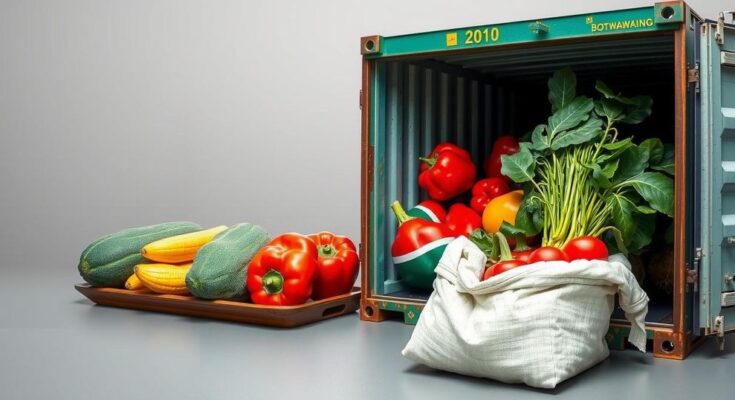Botswana’s newly elected government has lifted its ban on vegetable imports from South Africa in a phased approach, beginning with certain vegetables and expanding to include popular staples in April. This decision is aimed at revitalizing agricultural trade, mitigating food insecurity, and stimulating the local economy. The lifting of restrictions is seen as beneficial for both Botswana and South Africa, encouraging open trade practices within the Southern African region.
The Botswana government recently announced the revocation of its ban on vegetable imports from South Africa, which will be implemented in two distinct phases. The initial phase commenced earlier and allowed for the importation of certain vegetables, including turmeric, eggplant, and green peas. The subsequent phase, slated to begin in April, will permit the importation of a broader range of vegetables, encompassing potatoes, onions, and tomatoes. This move aims to restore the agricultural trade relationship between Botswana and South Africa, which has been strained due to previous import restrictions intended to support local agricultural producers.
In recent times, Botswana and Namibia imposed restrictions on vegetable and citrus imports from South Africa to bolster domestic production and enhance food security. However, with the rise of a new government led by President Duma Boko, these restrictions are being lifted as a strategic decision to improve trade relations and stimulate the local economy. This shift is significant for both national and regional agricultural dynamics, particularly as Botswana represents a sizable market for South African vegetable exports.
The decision by the Botswana government to lift the import ban on South African vegetables signifies a pivotal shift in agricultural trade policy aimed at fostering regional cooperation and economic revitalization. The phased resumption of imports is anticipated to alleviate food insecurity concerns in Botswana and help stabilize vegetable prices in both countries. This move underscores the necessity for open trade practices across the Southern African region, promoting intra-Africa trade without barriers.
Original Source: www.sowetanlive.co.za




